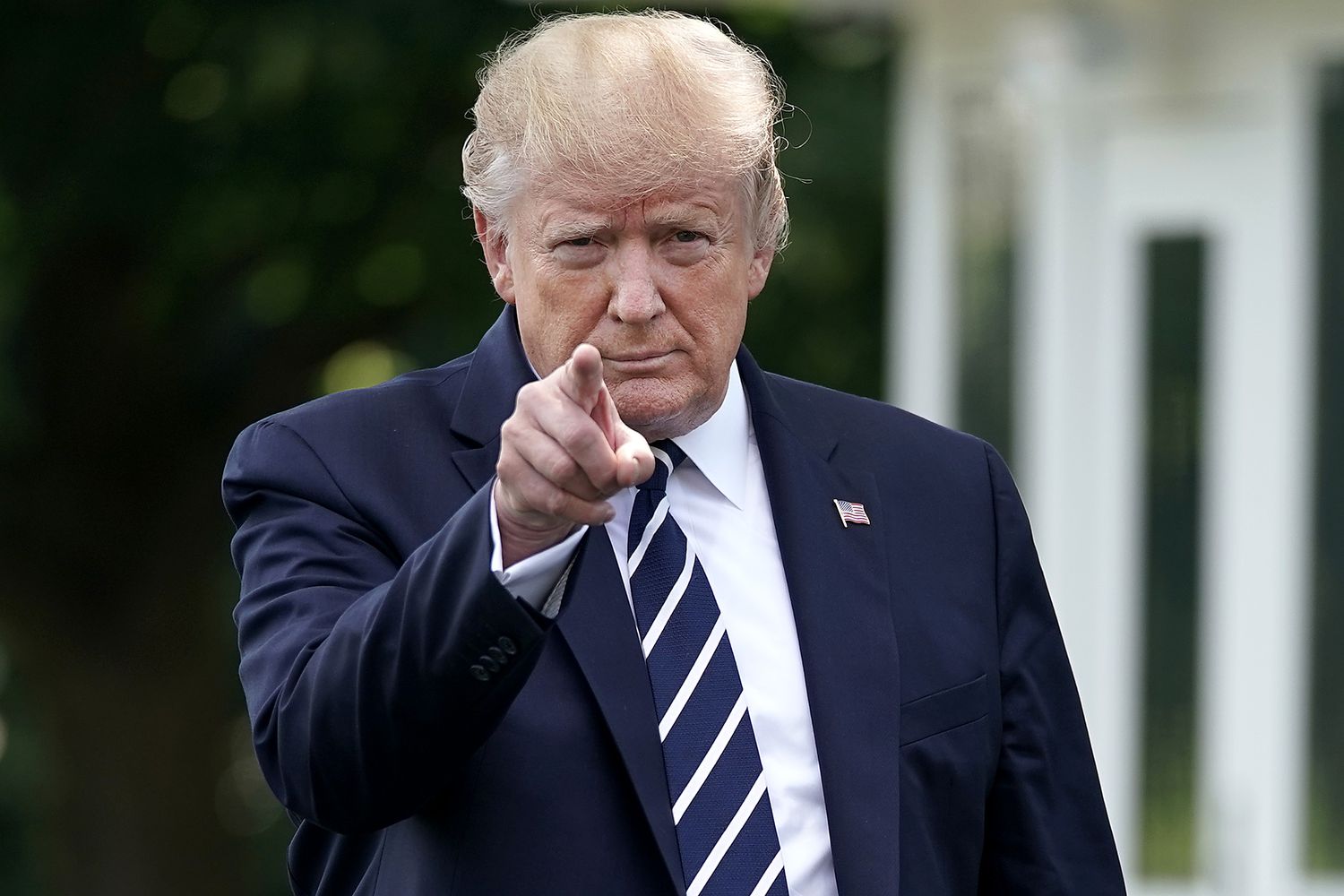Trump Fires Labor Chief After Disappointing Jobs Report: A Bold Move or a Risky Precedent?
In a dramatic move that has sent shockwaves through economic circles, President Donald Trump announced the firing of Bureau of Labor Statistics (BLS) Commissioner Erika McEntarfer on Friday, August 1, 2025, just hours after the release of a lackluster U.S. jobs report. The report, which revealed only 73,000 jobs added in July and significant downward revisions for May and June, painted a picture of a slowing labor market, prompting Trump to accuse McEntarfer of manipulating data for political purposes. But is this decision a justified response to economic challenges, or does it risk undermining the integrity of critical government data? Let’s break it down.
The BLS report showed that the U.S. economy added just 73,000 jobs in July, far below the 110,000 expected by economists. Even more striking, revisions slashed prior estimates by 258,000 jobs, with May’s figures dropping from 144,000 to 19,000 and June’s from 147,000 to 14,000—the largest two-month downward revision since the 2020 pandemic. The unemployment rate ticked up slightly to 4.2%, still near historic lows but signaling a cooling economy. Trump, in a Truth Social post, called the numbers “RIGGED” and claimed McEntarfer, a Biden appointee, had “faked” data to hurt his administration’s image, offering no evidence to support these allegations. “We need accurate Jobs Numbers,” he wrote, directing his team to fire her “IMMEDIATELY” and replace her with someone “more competent and qualified.”
The firing has sparked fierce debate. Supporters of Trump’s decision, including Labor Secretary Lori Chavez-DeRemer, argue that the BLS’s recent string of major revisions—such as an 818,000 job overstatement in March 2024—raises legitimate concerns about data reliability. They see the move as a push for accountability, especially given the report’s impact on markets, with the Dow Jones dropping over 500 points and the Nasdaq falling more than 2% on Friday. Kevin Hassett, head of Trump’s National Economic Council, defended the action, stating that the BLS has struggled with accuracy since the COVID-19 era and that a “fresh set of eyes” is needed.
Critics, however, warn that firing a career economist like McEntarfer, who was confirmed by an 86-8 Senate vote in 2024, sets a dangerous precedent. Economists across the spectrum, including former BLS Commissioner William Beach (a Trump appointee), called the move “groundless” and a threat to the agency’s nonpartisan credibility. “The charge that the numbers were faked is completely false,” said Michael Horrigan, a former BLS official, emphasizing that revisions are a standard part of the agency’s rigorous process to refine data as more information becomes available. Posts on X echoed this alarm, with users like @independant1492 comparing the firing to suppressing inconvenient truths, likening it to ignoring rising COVID-19 numbers. “This will do untold damage to the economy,” they wrote.
The timing of the firing adds fuel to the controversy. The jobs report coincided with Trump’s announcement of new tariffs on dozens of countries, set to take effect August 7, which many economists blame for economic uncertainty. Some argue that Trump’s policies, including tariffs and federal layoffs (84,000 government jobs lost this year), are weakening the labor market, and firing McEntarfer is merely deflecting blame. “Trump is firing the messenger because he doesn’t like jobs numbers that reflect how badly he’s damaged the economy,” said Lily Roberts of the Center for American Progress. Others, like Jason Furman of Harvard, warn that even the perception of political interference could erode trust in U.S. economic data, which is considered a global gold standard.
On the flip side, Trump’s base may see this as a decisive action to ensure transparency, especially given his long-standing skepticism of government statistics. He previously criticized BLS data during his 2016 campaign and praised it when favorable, as in April 2024 when the White House touted a report as proof of economic “revitalization.” The administration has named Deputy Commissioner William Wiatrowski as acting chief, but questions linger about whether a new appointee will prioritize political loyalty over expertise.
So, are Trump’s actions good for you? If you value independent, data-driven insights to guide investments or policy, this move could raise red flags, potentially shaking confidence in the numbers that shape economic decisions. If you support shaking up bureaucratic systems to align with a president’s vision, you might see it as a step toward accountability. Either way, the firing underscores a deepening divide over the role of facts in governance—and the stakes couldn’t be higher as the U.S. navigates economic headwinds.

